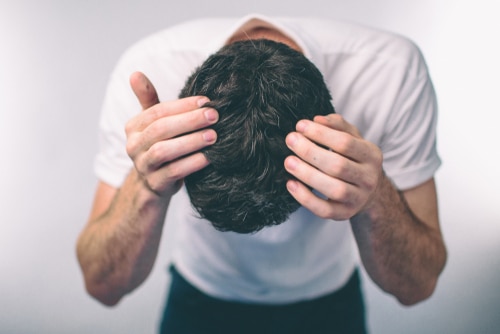How to Treat Alopecia & Hair Loss

Hair is seen as an aspect of self-expression. It’s usually a big part of your look, and it’s likely that you spend a lot of time taking care of it. When we lose our hair, unfortunately, it can be hard to handle. The good news is that for people with alopecia and hair loss, there are numerous medical and non-medical options that can help manage hair loss or even regrow it once lost.
What is Alopecia Areata?
Alopecia areata is an autoimmune disorder that causes you to lose hair when the hair follicles themselves are attacked by your body. With this particular condition, one of the tell-tale symptoms is losing clumps of hair that resemble the size and shape of quarters. There can be patches of hair loss or complete baldness, depending on the individual. Sometimes hair will regrow and fall out again, and in some cases, the hair regrowth will be permanent. Each patient will experience symptoms differently.
Treatment Options for Alopecia-Induced Hair Loss
Because this is an autoimmune disease, there is currently no cure for alopecia areata. There are numerous treatment options that may help sufferers, though. Your dermatologist can discuss your best options among some of the following common treatments.
Topical Immunotherapy Treatment
If you have suffered a significant amount of hair loss or recurrent hair loss due to alopecia areata, your dermatologist may suggest topical immunotherapy. The goal of this treatment is to apply medications to the area of hair loss to induce an allergic reaction. This reaction will lead to gradual hair growth. The downsides to this option are that it can cause rashes and to keep new hair growth it may need to be reapplied several times.
Corticosteroids
People who have various autoimmune diseases are given corticosteroids as an anti-inflammatory. They are used in various forms such as:
- Pills
- Foam
- Cream
- Injection into the scalp
- Ointment
These drugs can help with hair growth. They take longer than some patients would like to show results, but they can be easily combined with other treatment options to help maintain your results.
Minoxidil
This is a chemical that’s applied topically to the scalp. It’s been used to treat baldness or hair loss in people with or without alopecia. It’s commonly available over the counter in forms such as Rogaine®.
Non-Medical Ways of Dealing With Alopecia
There are ways to cope and help yourself as you deal with hair loss. Some things that patents find helpful include:
- Scarves and wigs
- Alopecia support groups
- Reducing stress levels to help slow down hair loss and keep new growth
You can use these coping strategies in conjunction with the medical treatments that you and your dermatologist decide to implement. In some cases, hair loss can be treated by simply changing your lifestyle, so your dermatologist can recommend your best options.
Schedule a Consultation
With help, there is definitely hope of hair regrowth in patients with alopecia. It may even be permanent. Working with a board-certified dermatologist with experience in treating hair loss will help. To learn more about your hair loss treatment options with Dr. Baird, we invite you to contact our Farmington office by calling or filling out our online form.

